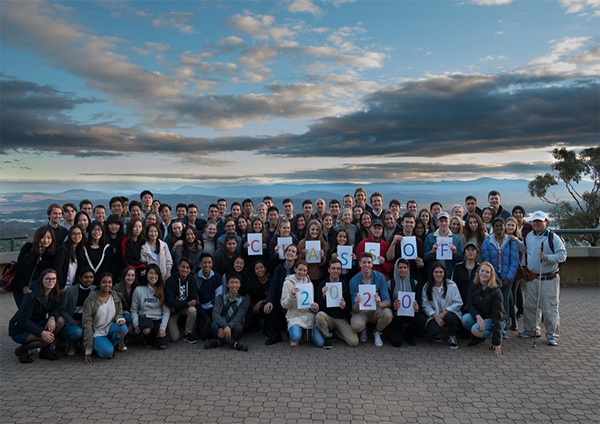City Planning students grand challenge: Does Canberra’s built environment display any inequality?
By Dr Christine Steinmetz, Senior Lecturer, Bachelor of City Planning
By Dr Christine Steinmetz, Senior Lecturer, Bachelor of City Planning

During the Built Environment Reading Week, Dr Christine Steinmetz took 87 first year Bachelor of City Planning students for a three-day field trip to Canberra.
Not alone in her endeavors, Dr Hoon Han, Dr Nancy Marshall and Simon Pinnegar were other Built Environment staff members in attendance, along with Sian Thompson, Ella Rosseler-Holgate and Carlos Bartesaghi-Koc all Built Environment PhD candidates and our first tutor and practicing planner, Scott Perugini Kelly They were a stellar team that kept two buses and two hostels organised and under control.
The students heard Rob Sroczynski (alumnus of 2013) at the Department of Infrastructure and Regional Development talk about his career spanning from work experience at Kogarah Council all the way to his current projects with Christmas Island. Students were also involved in a pilot study workshop facilitated by Lauren Hendriks (alumna of 2010) who is a senior policy officer at the ACT Government.
We were also fortunate enough to take in a lecture at ANU by Ed Wensing, one of Australia's preeminent scholars of Indigenous studies. He introduced the students to native title and statutory Aboriginal land rights in Australia.
The trip also included opportunities for students to work in their smaller project groups based on their designated study location in Canberra's City Centre. In groups of four, they would report on their chosen area and link it directly to one of UNSW 's Grand Challenges: Inequality. They would keep the following questions in mind to guide their discussion:
It was a successful field trip, personally and professionally. It was a great way for the students to start their undergraduate candidature at UNSW and it was a unique first year experience. A special thanks to Professor James Weirick for the pre-departure lecture and sharing his knowledge of Canberra.
Check out Christine's book (Sub)Urban Sexscapes: Geographies and Regulation ofthe Sex Industry (Routledge Advances in Sociology)